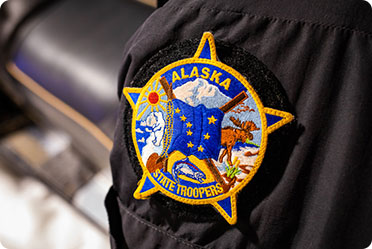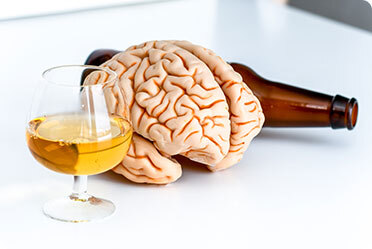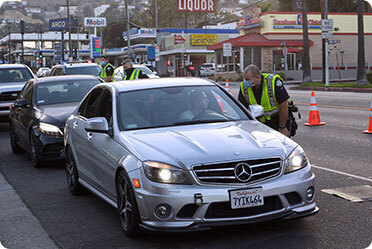
A perplexing shift in New Jersey constitutional law and municipal court procedure occurred on March 18, 2010. The New Jersey Appellate Division in State v. Kim, A-3863-08T4, denied the defendant’s appeal because he did not originally file a motion to suppress evidence of refusing to submit breath samples. Additionally, the court ruled that the defendant failed to prove he did not understand the refusal warnings provided to him in English. This holding and new rules of law are contrary to the Due Process clause, Rules of Procedure 3:5-7 and 7:5-2, and the Refusal statute (N.J.S.A. 39:4-50.4a). Under the Refusal statute and State…Read More

DUI laws are meant to protect the public and should be viewed in that manner. Nonetheless, there are many overzealous police officers who reach the wrong conclusions when arresting drivers. Here is one simple tip to keep in mind if you ever have the misfortune of being stopped by a police officer after you had something alcoholic to drink. Treat all of the police officers involved in a traffic stop with respect, even if an officer is less than respectful towards you. Obviously, police officers are people too and will often react negatively to rude behavior. For example, an officer…Read More

On January 14, 2010, the Governor of New Jersey signed into effect a new law for all DWI offenders concerning the ignition interlock device. This device requires that a driver blow into an attachment linked to a vehicle’s ignition before the vehicle can be started. If there is a certain level of alcohol in the breath sample, then the vehicle cannot be started. Unlike the past law, the new one requires that all second, third, and subsequent DWI offenders place an ignition interlock device on any vehicle “principally operated” by the offender. Previously, a judge was required to either order…Read More

Recently, an off-duty Philadelphia police officer struck a Pennsylvania State Trooper and tow truck driver in a car accident. The accident occurred on I-95 while the trooper and tow truck driver were clearing a disabled vehicle from the road. The off-duty officer is suspected of driving under the influence. See interview of injured trooper. http://abclocal.go.com/wpvi/story?section=news/local&id=7294286 On February 23, 2010, I attended a DUI seminar in Philadelphia. Two PA state troopers instructed at the seminar. Prior to the training portion of the seminar, one of the troopers spoke about his injured colleague. Both the trooper and the lawyer who introduced him strongly implied…Read More

On January 19, 2011, the New Jersey Supreme Court, in State v. Ciancaglini, No. A-92/93-09, issued a ruling that has immense consequences for anyone convicted of a DWI in New Jersey. The Court determined that a prior conviction for refusing to submit to breath testing cannot be considered for the purposes of enhancing penalties for a current DWI conviction. In Ciancaglini, the defendant was convicted in May of 2008 for DWI. Prior to the 2008 conviction, Ciancaglini was convicted for DWI in 1979 and for refusing to submit to breath testing in 2006. During her guilty plea, she argued that…Read More

Being arrested for driving under the influence can be a very scary and trying time for the person accused of such a crime, which means you will have plenty of questions regarding your situation and what comes next. For those of you who have been arrested for DUI and wonder how the human body and brain processes alcohol, look no further, we have some of the answers for you right here in this article. Three main topics will be discussed in this article: how the human body processes alcohol if you drank a lot in a short amount of time, how…Read More

The National Highway Traffic Safety Administration (NHTSA) has researched and determined that 3 different physical tests they’ve developed can accurately determine if a driver is impaired due to alcohol and/or drugs. Once the tests were determined to ‘work’, an official program was established to train police to properly give these tests to motorists suspected of DWI / DUI. Unfortunately, testing by various agencies has determined that FSTs (Field Sobriety Tests) are inherently flawed. The information below explains the different tests currently endorsed by NHTSA and the shortcomings of the methodology.. The Horizontal Gaze Nystagmus The horizontal gaze nystagmus (HGN) test involves the…Read More

Pennsylvania is using a highway safety class as one of the means of explaining to people convicted for drunk driving the severity of their actions. These classes are held at various places all over the state in order to be accessible to everyone. Each location must be approved by the local county in order to offer these classes to defendants. Nature Of The Classes The class is similar to a structured class held in middle and high school. There is a curriculum that must be followed. The class aims to inform students of the dangers of driving after consuming alcohol…Read More

The federal government and individual states decided some years ago to beef up their efforts against drunk driving. To that end, many states have enacted tougher laws to prevent driving under the influence (DUI), as well as stronger punishments. Implied Consent The laws and rules pertaining to receiving a driver’s license in Philadelphia contain an Implied Consent clause. This clause states that any person who is legally operating a motor vehicle within Philadelphia and the rest of Pennsylvania has agreed to submit to a blood alcohol content (BAC) test if one is requested by an officer of the law who…Read More

Pennsylvania is one of the many states that follows the Implied Consent rules and procedures. These rules and procedures indicate that anyone driving on the roads of Pennsylvania has given implied consent to submit to chemical testing of that driver’s breath, blood or urine if arrested by a police officer for a DUI. Drunk driving laws in Pennsylvania also follow the same mold of many other states by having two separate cases for people accused of driving under the influence (DUI) and those accused of refusing to provide samples for chemical testing. One case is a criminal case and the other is a…Read More